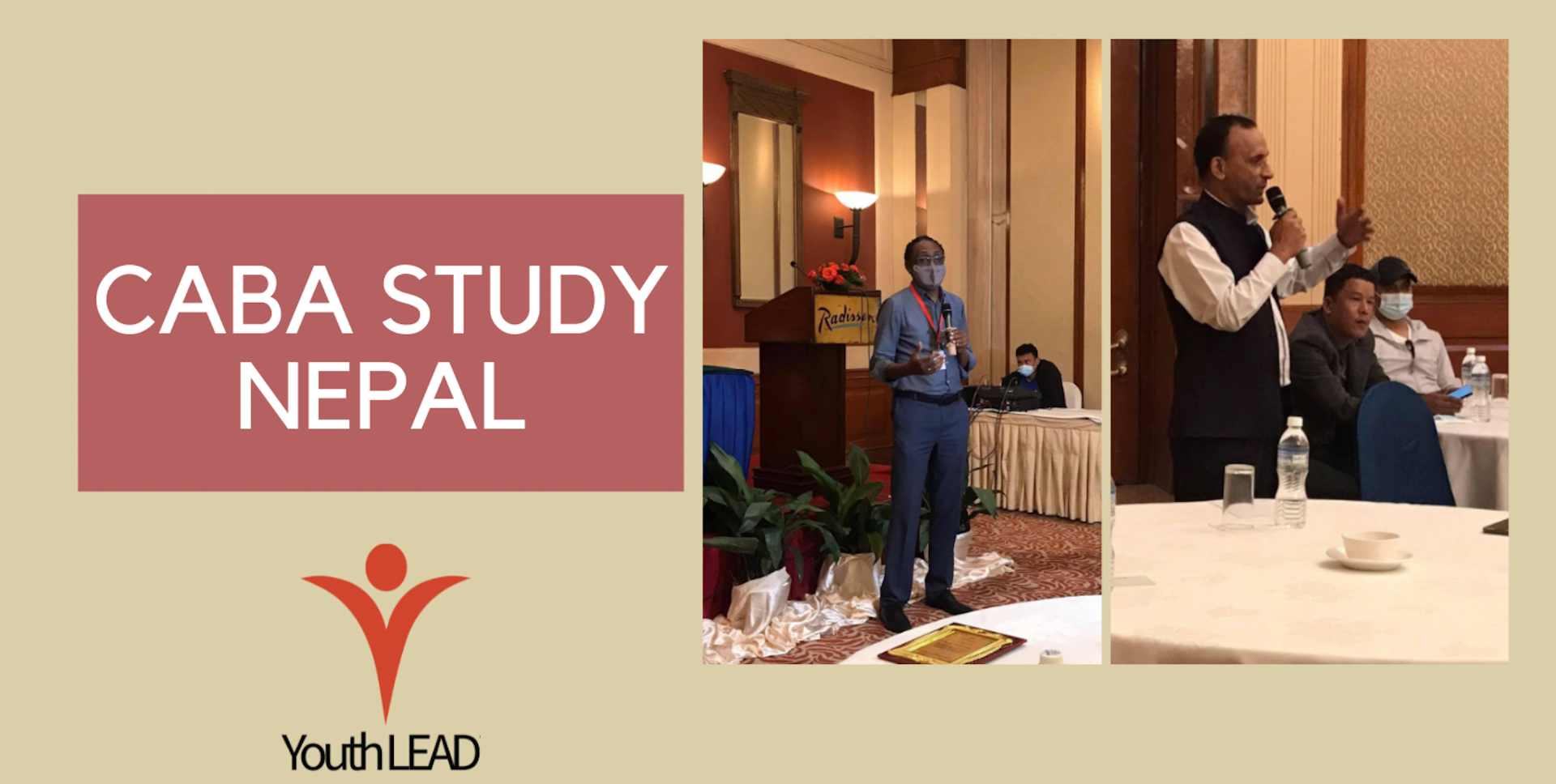Dissemination Meeting for the National Situation Assessment of Children Infected and Affected by AIDS (CABA) in Nepal

Dissemination Meeting for the National Situation Assessment of CABA in Kathmandu, Nepal
Background
Youth LEAD, YKP Lead Nepal, and the National Association of People Living with HIV (NAP+N) conducted research in 2020-21 to explore the overall situations of CABA (Children affected and living with HIV) in Nepal; and to evaluate the effectiveness and relevance of the cash transfer program for children living with HIV. The Global Fund CRG-TA grant funded the study, which was initiated in February 2020 but was delayed due to COVID-19.
The study employed mixed methods and was carried out in 20 districts of Nepal. Twenty-seven enumerators surveyed 805 CABA, 741 CABA caregivers, 10 FGDs, 40 key informant interviews, and ten in-depth interviews with children living with HIV above 18 years who have graduated from the cash transfer program.
The research team prepared the first draft report in May 2021 and went through a review process. The Technical Working Groups comprising the government, UN agencies, INGOs, principal recipients, and civil society reviewed the report. Additionally, Youth LEAD staff and an independent researcher reviewed and copy-edited the draft report.
Finally, the dissemination meeting was organized on the 24th of September 2021 in Kathmandu to share the study’s findings and gather feedback from the relevant stakeholders engaged in the HIV/AIDS advocacy and interventions at the national and local levels.
Participants
There were 24 participants in the meeting from different organizations representing UN agencies, INGOs, key population networks, PLHIV networks, and young people.
Proceedings
The representative from NAP+N, Youth LEAD, and YKP Lead Nepal gave opening remarks. NAP+N highlighted the importance of the research for advancing evidence-based advocacy to improve the CABA situation in Nepal. Youth LEAD gave a brief background on how the research team formed the concept of this study and the objective. YKP Lead Nepal stated that children and young people living with HIV are not a homogenous group and may be living with disabilities or belong to the LGBTI community. Therefore, he suggested that the intersectional nature of young people should also be taken into consideration while implementing programs.
In the second session, the NAP+N representative shared his experience of advocating for the rights of CABA in Nepal. According to him, 1230 children are currently getting 1000 rupees every month from the cash transfer program and emphasized that the money needs to be increased. He also highlighted the inactivity of the CABA advisory committee for the past four years, pointing out the importance of such a committee for forwarding CABA issues at the national level.
Next, a 17-year-old young person living with HIV shared their concerns about uncertain situations, as she will soon turn 18 next year. The cash transfer program and other support for children living with HIV end when a child turns 18. Therefore, she stressed that some programs should be targeted at young people affected by AIDS to help them become independent and sustain their lives.
The lead consultant then shared the key research findings. The study measured health status, care-seeking behavior, stigma and discrimination, psychological situation, nutrition, education, etc. Compared to the data from the 2009 CABA situation assessment, there is an improvement in all the measured issues. The cash transfer program has been beneficial, resulting in increased access to health care services and school enrollment. However, the amount has not increased since 2014.
The study also found that children affected by AIDS were equally affected by stigma, health issues, and socio-economic situations compared to children living with HIV. However, there were no tangible programs allocated for them.
The key study recommendations included:
-
Increase in the CTP allowance.
-
Needs Assessment before capacity development of the CTP graduates: Based on the assessment, a comprehensive skills development transition package (with job opportunities) should be designed and implemented for CABA to become self-reliant.
-
Ownership of local government for sustainability
-
Creation of safe and non-discriminatory environment in educational institutions and local communities:
-
Creation of child-friendly spaces: Health facilities should be child-friendly where CABA or PLHIV are not discriminated against and treated with respect as any other service seeker.
-
Communication behavior change through awareness campaigns: Mass awareness campaigns should be conducted for CLHIV and the general community, alongside scaling up counseling programs for CABA to address their mental health issues.
Way Forward
All the participants who spoke after the study presentations emphasized concrete action plans and implementing the recommendations accordingly. The key discussions were:
-
Needing more sensitive programs targeting 18+ adolescents graduating from the cash transfer programs to support them during this transition phase.
-
The probability that the allowance from CTP will increase is significantly less. As such, we need to focus on the skills development of CABA and young people.
-
A disclosure policy should be in place.
-
Before, we only used to have anecdotes for knowing the situation of CABA. Still, this study has added importance because the findings validate the situation that we only assumed.
-
A separate discussion meeting with the government is required to let them know about the current situation and the steps that are needed to be taken forward to address these issues. Discussions should be done with the government bodies based on the findings of the report.
-
The National CABA advisory committee should be re-activated to implement the recommendations and advance the CABA issues.
Edited by: Gaj Gurung, Regional Coordinator, and Vanessa Monley Programmes Officer at Youth LEAD

